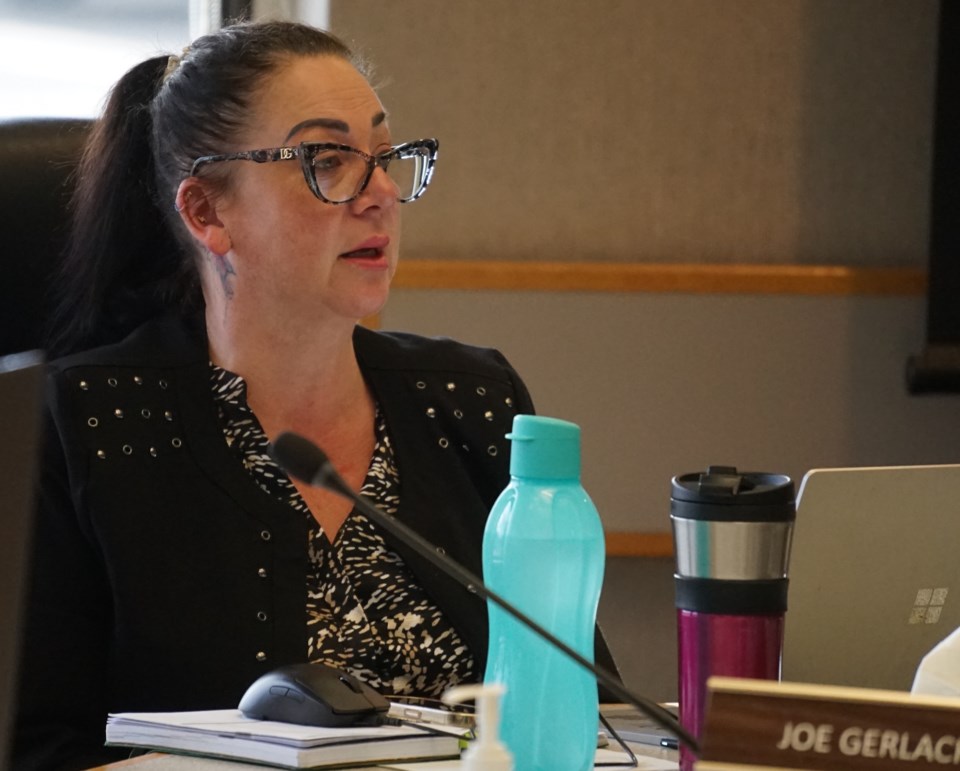ATHABASCA – Athabasca County councillors remained deadlocked over the best course of action for Colinton’s water rates, despite ongoing debate on whether or not a change is even needed.
During their Jan. 14 council meeting, councillors continued to debate the future of the hamlet’s local improvement levy, which has been a source of disagreement for the table since last fall.
“When this levy was instituted, it was a loan for the (water-line) improvements in Colinton. When Wandering River and Grassland received their water, they did not have a levy placed upon them,” said Reeve Tracy Holland.
“Council at the time was approached by Colinton residents who said, ‘Hey, if they don’t have to pay for a levy, so why should we?’ In appeasing that, the levy has been zeroed out according to their water bills.”
Councillors had previously asked administration to provide a report on the possibility of forgiving the levy — which is effectively a loan being paid off yearly by property owners — and while the report confirmed that forgiving the loan is a legal option, CAO Bob Beck cautioned against the precedent such an act would set.
“I think there’s more discussion to have, and I think that there’s already a precedent that has been set,” said Coun. Gary Cromwell, who was in favour of forgiving the levy.
“For the clarity of everything, I would like to see this local improvement rate be done away with.”
Cromwell and Holland both believe the levy is causing the county more grief than it’s worth, with Cromwell reporting confusion from Wandering River residents who want to know why Colinton’s water is cheaper than theirs is.
A motion to accept the administrative report for information, which would have tabled the discussion indefinitely, was defeated in a tie vote, with councillors Ashtin Anderson, Natasha Kapitaniuk, Camile Wallach and Brian Hall voting in favour, while Cromwell, Holland, Rob Minns and Joe Gerlach were opposed.
Kapitaniuk, a Colinton resident herself, said she felt the discussion was being had without consultation from the community itself.
“I don’t think Colinton wants to be known as the community that took out a loan and didn’t pay it back,” said Kapitaniuk. “The property owner is the one who pays the levy; if you take that away, you’re penalizing people who rent because they would be paying higher rates.”
According to Beck’s report, roughly $290,000 is left on the levy, which is being recouped by the county at a rate of $22,272 a year, meaning the debt would be paid off by 2037.
Three properties opted to pay the levy off in full initially, and would need to be refunded if the levy were to be forgiven.
While the cost of the levy has been functionally zeroed out by the discounted water rates the community pays, Kapitaniuk pointed out that the change would only harm renters, at the benefit of property owners.
“Colinton has a lot of rental properties in the area since the homes are small and affordable,” she said. “The property owner is the one that pays the levy — if you take that away, you’re penalizing people who rent because they’re now paying higher rates. It seems silly to me. It was never asked for, it was never talked about, and now here we are talking about forgiving a loan for a great amount of money to charge people on another bill.”
Other councillors were concerned about the potential issue forgiving the levy would cause if a future council wanted to set up a similar structure, including Hall.
“This does set a very dangerous precedent for the future use of local improvement levies and our ability to use them in the future. Local improvement levies can be a really important tool for municipalities to advance the needs and development inside of communities,” said Hall.
“It’s a great way to partner with communities, and we shouldn’t poison the well on that by reneging on a commitment that has already been made. WE often have heard at this table that people are struggling, and I agree that this needless shift just transfers the cost to exactly those people.”



